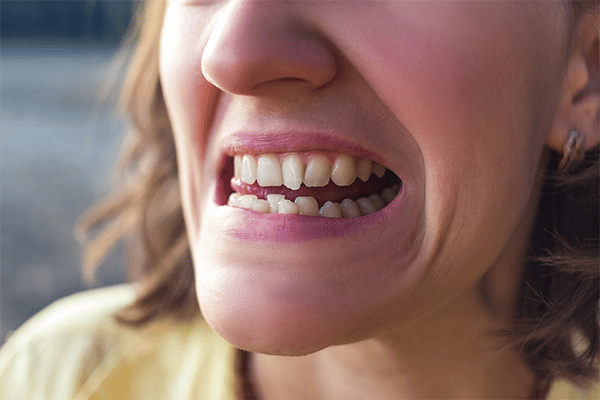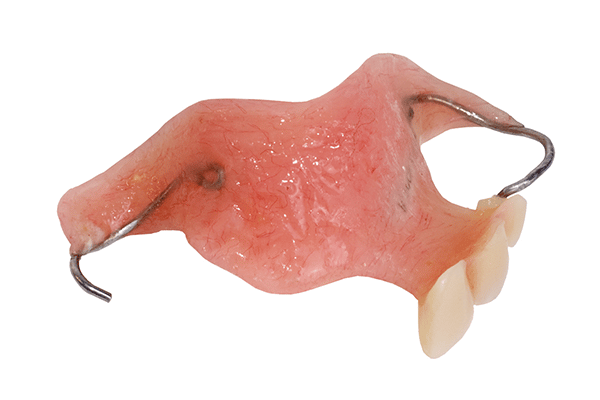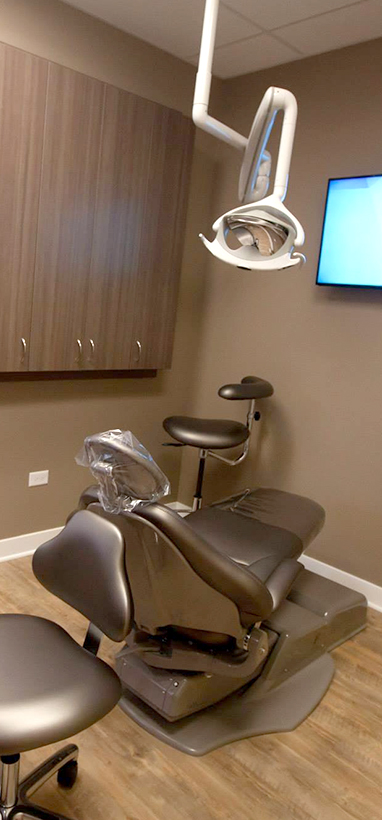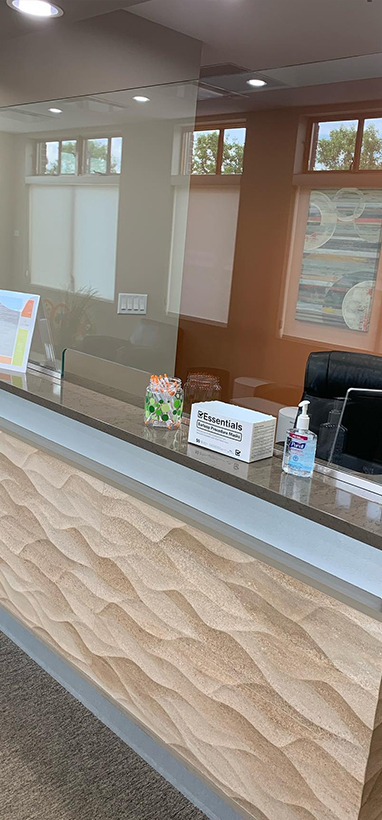1516 Legacy Cir, Naperville, IL 60563
Dry Mouth (Xerostomia) Explained

If you get really nervous or stressed about something, you might notice that your mouth may get dry for a short period of time. This is a normal reaction, but if this dryness becomes a persistent problem you may have Xerostomia also known as dry mouth.
Spit or saliva is very important to help keep your teeth healthy by neutralizing the acid in our mouth from the things you eat or drink and washing away the food that is stuck to your teeth and gums. When the amount of saliva you have is reduced your teeth will become more prone to developing cavities and you’re also at greater risk to getting gingivitis or periodontal disease.
At Living Well Dental Group we like to keep our patients informed about things that can affect their teeth and gums such as dry mouth. Please read along in our blog for symptoms, causes and ways to manage dry mouth.
What Is Dry Mouth?
Xerostomia is when your mouth is too try. This occurs when there is a reduction in the amount of saliva in your mouth. It will make your mouth feel sticky or make the saliva you have feel thicker. Dry mouth may occur on occasion which is not a cause for concern, although constant dry mouth may be due to an underlying health condition. This should be evaluated by your primary care provider to determine the cause. Once we know the underlying reason, we can determine the best ways to prevent it from causing any damage to your teeth and gums.
Dry Mouth Causes
Dry mouth occurs when the salivary glands don’t produce enough saliva. There are many reasons for this, some of which are not a real concern and others that may need medical attention. Here are some common causes:
- Medications: The most common cause is prescription and non-prescription medications. There are over 400 commonly used medications that cause dry mouth. Some of these are medications used to treat blood pressure, bladder control and depression. Sometimes changing your medications is not an option. In this case, we do the best we can to manage the symptoms of your dry mouth.
- Side Effects of Certain Medical Conditions: Xerostomia can be a side effect of certain medical conditions including Sjogren’s Syndrome, HIV/AIDS, Diabetes and Parkinson’s Disease.
- Dehydration: Dry mouth can be caused by dehydration. Dehydration occurs when you don’t have enough fluid in your body to produce saliva. Excessive sweating, fever, and vomiting may all lead to dehydration.
- Salivary Stones: Salivary stones may cause sudden dry mouth. These crystallized minerals get lodged in salivary gland ducts and block saliva causing sudden dry mouth.
- Nerve Damage: Dry mouth can be a result of nerve damage to the head or neck area from an injury or surgery.
- Side Effect of Certain Medical Treatments: Radiation or chemotherapy treatments for cancer can often cause dry mouth. Radiation may damage salivary glands. Chemotherapy can make the saliva thicker which will make it feel dryer. We will usually recommend more frequent dental visits and a prescription toothpaste to help manage the condition while undergoing these types of medical treatments.
- Smoking or Chewing Tobacco: Smoking or chewing tobacco can reduce how much saliva you produce. The nicotine in cigarettes or chewing tobacco reduces saliva production therefore causing dry mouth.
- Aging: Many older people complain of dry mouth, although this might be attributed more to the medications that they take.
Dry mouth can also be caused by things not related to an underlying condition or disease such as:
- Snoring or sleeping with your mouth open causes dry mouth at night
- Hot weather
- Eating dry foods
Dry mouth symptoms
If you often feel like “my mouth is too dry” you may be suffering from a condition called xerostomia. It can affect your mouth in many ways. Here are just a few symptoms that you may notice:
- Your mouth may feel sticky
- Your saliva may feel thick
- You may be thirsty often
- You may notice that your lips are dry and crack easily
- You may get mouth sores
- You may notice a dry tongue that may tingle
- You might have a sore throat
- You may develop gingivitis or periodontal disease
- You might suffer from bad breath
- You may notice dry eyes
- You might have a difficult time speaking, chewing and swallowing
- You may develop a fungal infection in your mouth
- You may notice an increase in tooth decay
Why is dry mouth a problem?
Dry mouth can be detrimental to the health of your teeth. It increases your risk to cavities, gingivitis, and periodontal disease. Once the cause of your dry mouth is determined, most people are looking for xerostomia treatments that will help to minimize the discomfort and negative dental effects to their teeth.
Dry Mouth Treatment (Xerostomia Treatment)
There are many remedies for Xerostomia. Here are a few:
- Switch Medications: If you think that the dryness of your mouth is related to your medications, check with your primary care provider. They may be able to switch the medication or reduce the dose.
- Chew Sugar-Free Gum: Chewing sugar-free gum (with xylitol) or sugar-free candy can help to stimulate saliva. This should only be done for 5 minutes less at a time.
- Drink Water: Drinking lots of water can help to keep your mouth moist.
- Dental Visits: Regular dental visits will help to determine if your lack of saliva is causing any harm to your teeth. Dental x-rays may be needed to look for possible cavities that may be starting. Taking care of these things early can help to minimize any dental emergencies in the future.
- Brushing: Brushing with a fluoridated toothpaste will help to prevent cavities.
- OTC Products: Using over the counter products that are specific to dry mouth will help.
- Alcohol-Free Mouthwash: An alcohol free mouthwash can help.
- Artificial Saliva: Artificial saliva substitutes will help while eating and speaking.
There are even some home remedies for dry mouth that can help. Here are a few:
- Avoid Caffeine: Caffeine may cause dehydration, resulting in dry mouth.
- Run a Humidifier: A humidifier can add moisture into the air which will help dry mouth associated with open mouth breathing while sleeping.
- Eat Ginger: Ginger has been proven to increase the production of saliva in some studies.
If you think you have dry mouth, it is best to make an appointment with your primary care provider to determine why it is happening and then visit your dentist to help manage any negative effects it may have on your teeth. Following some of the simple home remedies mentioned in this blog can help you to avoid needing more extensive dental work in the future.
Call Naperville’s Top Dental Experts Today
If you’re concerned about dry mouth and would like to have your teeth and gums evaluated by the knowledgeable dental team at Living Well Dental Group, call (630) 505-1516 today.










